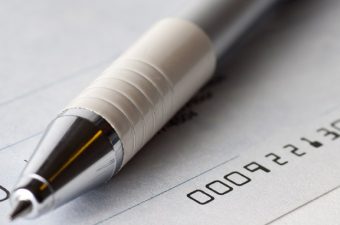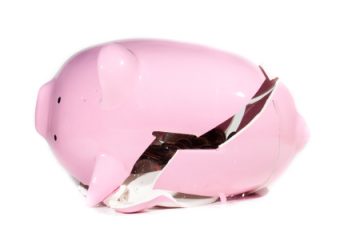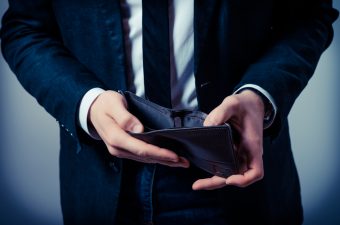Bankruptcy - Everything You Need To Know
If you are in debt and are considering bankruptcy think before you act. Bankruptcy is a last resort and has serious consequences. There are various options to deal with unmanageable debts. Before you make any decisions or take any steps to talk to Fox Symes. There are alternatives.
What is Bankruptcy?
Bankruptcy is a legal process that can be declared when an individual cannot pay their debts as and when they fall due. In Australia, Bankruptcy is governed by the Bankruptcy Act 1966 and is regulated by the Australian Financial Security Authority.
Once you have been declared Bankrupt you give up control of your finances and assets to a Trustee in exchange for protection from legal action being taken against you by a person or entity to which you owe money. Depending on your financial situation there may be alternatives to bankruptcy such as an informal arrangement, debt consolidation, a mortgage refinance, a debt agreement or a personal insolvency agreement.
Do I Need to Become Bankrupt?
Bankruptcy may seem an easy and attractive option if you want to deal quickly with your creditors. However, it has consequences which you should know about before you consider taking this step. Find out from Fox Symes the other options which may be used to address your financial situation. You may not have to go bankrupt.
How do I become Bankrupt?
When you feel unable to pay your debts and you cannot come to a satisfactory arrangement with your creditors then bankruptcy maybe your best option. You may voluntarily lodge a debtor's petition to become bankrupt.
A creditor may also bankrupt you. Once you have spoken with Fox Symes and, after reviewing your options, you have decided that voluntary bankruptcy is your best option, Fox Symes will assist you in taking the necessary steps to become bankrupt. You do need to be fully informed because the consequences of bankruptcy are serious.
Is there a minimum amount I need to owe before I can go Bankrupt?
No. You can become bankrupt voluntarily owing any amount. A creditor, however, cannot make you bankrupt unless the debt you owe is $5,000 or more.
Who would handle my Bankruptcy?
AFSA will administer your estate if no registered trustee has provided a consent to act. Fox Symes has a registered trustee and that trustee may consent to act on your behalf.
What happens when I become Bankrupt?
Once you are a bankrupt your unsecured creditors will cease to contact you. If you want this to happen then you must list all your unsecured creditors in your Statement of Affairs. This will also include debts which you have taken out with another person, that is joint debts, and even money you may owe to your family and friends.
Most legal action which an unsecured creditor had taken against you must stop once you file for bankruptcy. This also applies to a garnishee from your income or bank account or any recovery action by a sheriff or bailiff.
If any of your unsecured creditors continue to contact you then you should notify your trustee. They will contact the creditor. There are some debts which you must continue to pay during bankruptcy and these include:
- Penalties and fines imposed by the court
- Unliquidated damages from accidents e.g. car accidents may be an exemption
- Student assistance/supplement loans and HELP debts
Of course, you must continue to pay certain debts such as your utility bills and any additional debts you incur after your bankruptcy commences.
What happens to my assets when I become Bankrupt?
When you become a bankrupt some of your assets can be retained because they are protected property and some may be recovered by your trustee and sold.
An asset is defined as anything of value you own when you become a bankrupt and anything you buy or receive before the end of your bankruptcy. When you become a bankrupt what you may keep includes:
- Most of your ordinary household or personal items
- Tools of trade used to earn an income up to a set limit
- Vehicles (e.g. cars or motorbikes) up to a set limit
- Most funds in a complying superannuation fund
- Life insurance policies
- Compensation for a personal injury
- Centrelink payments are also protected
Before you file for bankruptcy make sure you thoroughly investigate exactly what assets are protected and those which are not.
Will any of my assets be sold?
Some assets are protected under bankruptcy and those, which you can generally keep, are listed above. However, there are other assets which your trustees can recover. Examples of these assets include:
- Houses; apartments; land; business and any other real property
- Motor vehicles which are not exempt
- Shares and other investments
- Any tax refund for income earned before you became a bankrupt
- Proceeds from a deceased estate where the person died before or during your bankruptcy
- And lottery winnings
Any asset you own with another person may also be sold by your trustee.
What if my house is mortgaged?
Your trustee has to deal with any equity or interest you have in a property for the benefit of your creditors. This may mean that the property has to be sold. If the property is jointly owned the trustee may consider selling his interest in your property to a non-bankrupt joint owner. Alternatively, the joint owner provided they are not bankrupt may make an offer to purchase the trustee's interest in the property.
What if I have a car?
Once you become bankrupt, a vehicle which is used primarily as a means of transport (eg. car or motorbike), where your interest in the vehicle is less than a prescribed amount (indexed), is protected and can be retained by you. Where the interest in the vehicle is valued at more than the prescribed amount the trustee is required to sell, and give back to you the value of the prescribed amount and retain the balance for your creditors.
What happens if someone else also signed the loan agreement? Will they have to pay if I declare myself Bankrupt?
Generally, yes. They will still have a liability for the total amount outstanding on all debts incurred in joint names.
What happens if someone has guaranteed some of my debts?
Bankruptcy does not affect the rights of a creditor to claim under a guarantee. The creditor is entitled to recover payment from the guarantor. Once payment has been made, the guarantor steps in the shoes of the creditor and is able to lodge a claim in your bankruptcy for the debt paid.
What about debts incurred just before Bankruptcy?
If you are already insolvent, that is you cannot pay your debts, you should not incur further credit because if you become bankrupt it may be an offence under the Bankruptcy Act, and you may be prosecuted.
What happens to a debt I forgot about at the time of becoming Bankrupt?
If you forgot about a debt and remember it later, you should contact your trustee as soon as possible so that it may be added to your list of creditors. Failure to disclose debts could extend your bankruptcy to 5 years.
What about debts incurred after Bankruptcy?
If you become bankrupt you will be responsible for any debts incurred by you after bankruptcy.
Can a creditor still contact me insisting on payment once I have become Bankrupt?
No. The Bankruptcy Act prevents creditors from recovering money from you. An exception is a secured creditor with whom you have made arrangements to retain the secured property. If other creditors attempt to recover money from you, you should advise them of your bankruptcy, and if they continue to insist you should notify your trustee.
Can I continue to use my credit cards after Bankruptcy?
It is a matter for the issuing bank or finance company as to whether they are prepared to continue to extend credit to you. All creditors at the date of bankruptcy should be listed on your Statement of Affairs and they will be notified of your bankruptcy. It is an offence for you to incur credit over a set limit without disclosing to the person you are dealing with that you are an undischarged bankrupt.
Can I have a bank/cheque account?
In most cases, yes, with the agreement of the financial institution.
How does bankruptcy affect my employment?
Your bankruptcy may prevent you from undertaking employment in certain occupations or holding various licences. We advise that you contact any professional bodies that you are registered with to ensure that there are no restrictions in continuing your employment in the event that you become bankrupt. Your employer is not normally notified of your bankruptcy unless you owe him/her money or unless you have failed to pay compulsory contributions. It is still your responsibility to lodge taxation returns.
Do I have to make payments from my income to the Trustee?
If you earn an income above an indexed statutory amount you are obliged to make regular payments or "contributions" to the trustee for the benefit of creditors. As contributions are enforceable at law if payments are not made voluntarily the trustee can issue a notice on your employer to garnishee your income.
What are my rights and responsibilities once Bankrupt?
Borrowing Money
When you are borrowing money, purchasing goods on credit or incurring credit in any way exceeding a prescribed amount (indexed) it is an offence unless you inform the person you are dealing with that you are an undischarged bankrupt.
Operating a Business
You can still operate a business while bankrupt. If you trade under an assumed name or business name either as a sole trader or in partnership, you have to disclose to all your bankrupt status. You cannot be a director of a company or be involved in its management without the permission of the Court.
Change of Name, Address and Overseas Travel
You are required to notify your trustee of all changes of name and/or address. If you wish to travel overseas you must obtain written approval of the trustee administering your estate.
When are the creditors notified of my bankruptcy?
The creditors are notified in writing as soon as possible by the trustee and informed of the assets and liabilities disclosed by you on your statement of affairs.
Does bankruptcy affect my credit report?
When you become a bankrupt your name will be on the public record (NPII) forever. Your name will be on a commercial credit reference for 5 years even if your bankruptcy has been discharged. Lenders may limit your ability to borrow money or buy things on credit. You may also find it hard to rent a property, or get any utilities connected without paying a bond and some banks will not let you operate an account or will restrict how you can use your account. If you have any queries regarding your credit report you should contact Veda Advantage.
Will I have to appear in Court?
Your trustee will decide whether there are matters requiring examination before the Official Receiver or the Court. If, for example, investigations into your affairs are needed you may be required to attend an examination or an interview.
Are there offences under The Bankruptcy Act?
Yes. The most important are listed below:
- disposing of the property before bankruptcy with intent to defeat your creditors
- failure to disclose assets
- the deliberate obtaining of credit when you know you cannot pay
- gambling and speculation which materially contributes in bankruptcy
- incurring debts during bankruptcy exceeding a prescribed amount (indexed) without disclosing that you are bankrupt
- operating a business under an assumed name, without advising your bankruptcy
- leaving Australia without the trustee's permission
The penalties for these offences vary from 6 months to 3 years imprisonment upon conviction.
How long will my bankruptcy last?
Bankruptcy lasts for three years unless your trustee lodges an objection to you being discharged and then the bankruptcy can be extended for an additional five years.
Bankruptcy is a last resort and has serious consequences.
If you are in debt and want to know more about the solutions available to you contact us on 1300 361 204.
Client Testimonials
What do customers think about Fox Symes? Hear what other customers are saying about us.



